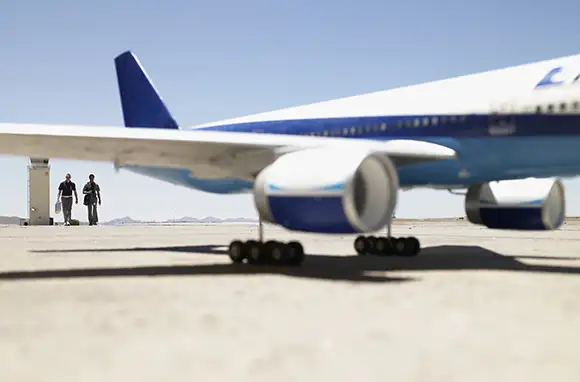
The airline business—like show business—somehow keeps attracting would-be operators into what has largely been, over the years, an investor’s black hole. Since deregulation, about 200 new airlines were started in the U.S. and Canada, but only a handful survive: Allegiant, (the new) Frontier, JetBlue, Porter, Spirit, Sun Country, WestJet, and Virgin America. (Some folks also include Southwest, but it actually started several years before deregulation.)
Surviving start-ups focus on some combination of very low costs and low fares, per Frontier, Spirit, and WestJet; superior coach/economy products at competitive fares, per JetBlue, Porter, and Virgin America; a substantial number of seats sold to tour operators, per Sun Country; and unique nowhere-to-somewhere routes, per Allegiant. Only one airline, Midwest Express, survived more than a year with a “first class at coach prices” strategy; a dozen or more others flopped very quickly.
The start-up scene was very quiet following the great recession, but it seems to be heating up again. Here are nine start-up airlines (based in or flying to North America) that have mainline aspirations. Will they survive? You decide.
Image Gallery

California Pacific
This one is a surprise: California Pacific has been hanging around in "almost" status for at least three years. Its ambitions are modest, its business plan seems rational, and it appears to have at least one airplane. I'm surprised that it isn't already flying. The carrier plans to base at small, user-friendly Palomar Airport in northern San Diego County and to serve nearby upscale residential areas, light industry, and beach communities. From there, it will fly Embraer 170s to popular nearby destinations: Cabo San Lucas, Las Vegas, Oakland, Phoenix, Sacramento, and San Jose. The product will be a bit upscale: The Embraers have standard four-across seating, with no middle seats, and the airline proposes one no-fee checked bag and no ticket-exchange fees. What's not to like?
Prognosis: California Pacific should have a decent shot at achieving its modest goals; in fact, it should have started by now. But there has to be some reason for those endless delays.

California Pacific
This one is a surprise: California Pacific has been hanging around in "almost" status for at least three years. Its ambitions are modest, its business plan seems rational, and it appears to have at least one airplane. I'm surprised that it isn't already flying. The carrier plans to base at small, user-friendly Palomar Airport in northern San Diego County and to serve nearby upscale residential areas, light industry, and beach communities. From there, it will fly Embraer 170s to popular nearby destinations: Cabo San Lucas, Las Vegas, Oakland, Phoenix, Sacramento, and San Jose. The product will be a bit upscale: The Embraers have standard four-across seating, with no middle seats, and the airline proposes one no-fee checked bag and no ticket-exchange fees. What's not to like?
Prognosis: California Pacific should have a decent shot at achieving its modest goals; in fact, it should have started by now. But there has to be some reason for those endless delays.
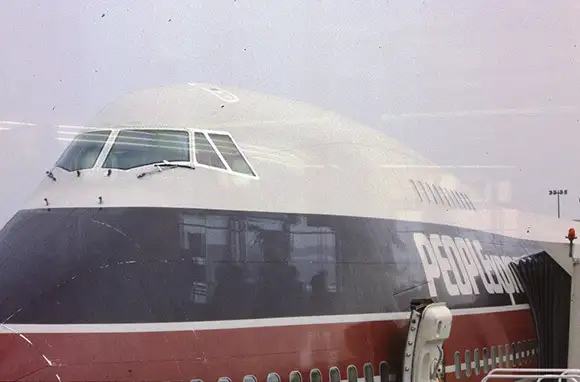
PeoplExpress
The "new" PeoplExpress poses a bit of a conundrum. Yes, the original PeoplExpress had a decent business plan and it might have survived absent its disastrous acquisition of the first-generation Frontier. But the original very-low-fare line mainly did point-to-point flying to/from its Newark base, where it could tap the huge New York-metro market.
By contrast, the new PeoplExpress plans to base at Patrick Henry Field in Newport News—certainly not a huge origin or destination market—and to do a lot of hubbing connections there. Initial flights, says the website, will be to Newark—a route that probably has enough traffic to support two or three daily round-trip flights—but the airline will be hard-pressed to find many more nonstop routes with that potential. The plan is to operate regional flights to/from "underserved" cities, but most underserved cities are underserved for a good reason: They don't generate enough traffic.
Prognosis: By acquiring Xtra Airways, PeoplExpress bypassed the usual start-up red tape. But it apparently still needs more investment, and its business plan is suspect.

Avatar Airlines
This proposed airline has been around, off and on, as either Avatar Airlines or Family Airlines, since 1992. Throughout, the airline's base plan has always been to fly high-density 747s on high-volume domestic routes at fares well below the competition. The airline promises ultra-low fares, coupled with no-fee checked baggage, for-sale meals from upscale restaurants, and onboard Wi-Fi. Avatar promises these low fares "without sacrificing the creature comforts of luxury flight." But you can't do the "creature comforts of luxury flight" when you stuff 539 economy seats on the lower deck.
The website shows an ambitious route system linking Chicago, Dallas, Honolulu, Las Vegas, Los Angeles, Miami, Orlando, Philadelphia, San Diego, San Francisco, and San Jose. Initial flights will probably target either Las Vegas-to-New York or Los Angeles-to-New York routes.
Prognosis: Industry mavens seem to think Avatar's financial projections are extremely optimistic. Meanwhile, Avatar's website says, "Aircraft wanted: up to 30 Boeing 747-400s," of which plenty are available.
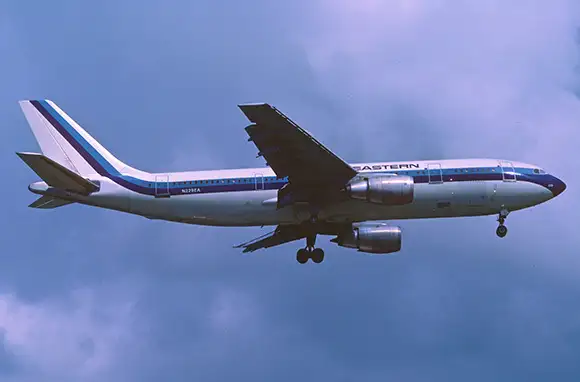
Eastern Air Lines
Eastern's website overflows with praise for the history and personalities of the original Eastern, but the two airlines really share nothing beyond the name and logo. Old Eastern was one of the pre-deregulation "big four." Conversely, the new Eastern will probably start out by flying charters to nearby beach destinations for big tour operators in the East and Midwest.
What's with this recycling the names of failed giants, anyhow? During a previous such attempt, one industry pundit quipped, "Naming a new airline 'Pan American' makes as much sense as naming a new nuclear power plant 'Chernobyl.'" Accordingly, "Eastern" is a strange choice. In terms of customer appeal, the original airline was the Spirit or Ryanair of its generation: At one point, an organization called the WHEAL (We Hate Eastern Air Lines) Club had thousands of members.
Prognosis: The new Eastern can probably carve out a modest niche providing regional lifts for tour operators. But growing to legacy status or even approaching the reach of the original? Meh.
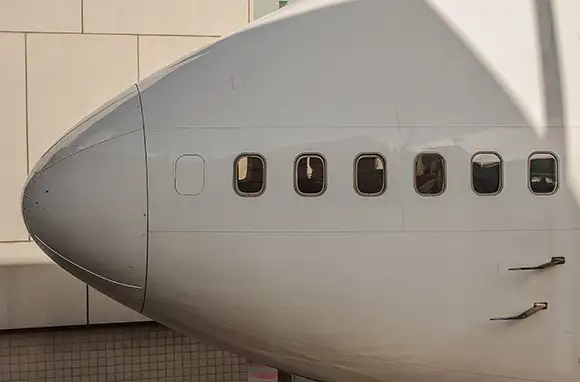
Baltia Air Lines
Baltia, "America's newest airline," plans to fly 747s from the U.S. to Russia and other nearby countries. First flights are planned between New York JFK and St. Petersburg, starting late this year. No specific schedules or fares are available, but Baltia promises some consumer-friendly policies: discounts for seniors, youths, students of any age, and groups; reduced bereavement fares; full cash refunds for unused tickets and therefore no charges for ticket exchange; and a frequent-flyer program. The website mentions three classes—Voyager (economy), business, and first class—but so far, it shows no information on seating arrangements or features. According to the company, its first 747 is now undergoing maintenance requisite to initial flights.
Prognosis: It's hard to say. Preparations seem to be ahead of several other start-ups, but, in the counterpart to the classic Yogi-ism, "It ain't started 'til it's started."

Las Vegas Air
Another Vegas-based wannabe, this one, as either Las Vegas Air or LV Air, has been around awhile. Although industry reports use both names, the cast of characters seems identical. But the purported business plans have been pretty elastic. And there isn't even an official website. All reports seem to agree on a "luxury" airline aimed at flying "high rollers" to Las Vegas. And most agree that part of the plan is to sell some or all seats to the major casinos to dole out to customers as they decide. But routes and equipment are wildly different: Some say the airline will concentrate on New York; others say it will funnel Vegas visitors from all around the globe. Some say it will fly brand-new 777s, others say older 767s or 747s; some imply conventional seating, others claim the line would start with 747s holding only 40 first-class and 200 premium coach seats.
Prognosis: Given that lots of airlines operate lots of flights from lots of places to Las Vegas, the success of this venture would seem to hang on its ability to sell zillions of seats to casinos—not exactly a sure-thing bet. In any event, at this point, Las Vegas Air seems largely like vaporware. Don't plan on using it for your next Vegas visit.
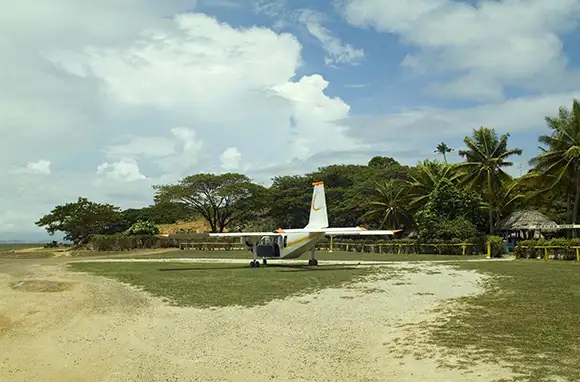
American West Jets
Still more Vegas: The idea with American West Jets seems to be to start by flying from Las Vegas to Fiji, Pago Pago, and Sydney. Some reports say the airline also plans to fly from Orlando-Sanford to several countries in West Africa and the Caribbean. Fares, schedules, and such are not even close to settled. One plane pictured on the website is a 747-400 and the other is a Lockheed L1011—an Eastern Air Lines L1011, which is a model that has been retired from commercial service worldwide. And nothing in the industry media seems to indicate what the airline's specific business plan might be. It did buy out the operating certificate from Ryan International, however, so it doesn't face huge paperwork requirements.
Prognosis: It seems like vaporware for now—and maybe also for later.
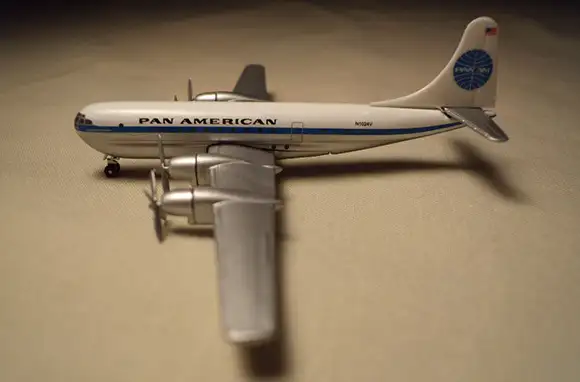
Pan American Airways
American West Jets isn't the only airline to claim Ryan International's operating certificate. Pan American Global Holdings, a privately held corporation that owns a bunch of Pan Am-related trademarks, just announced that it too had acquired Ryan's paperwork and would restart Pan American Airways. There seems to be some connection between this proposal and America West Jet's, but the trail is murky.
If it proceeds, this would be Pan Am resurrection number four (at last count). The new company even has its office in New York's former Pan Am building, and its website claims to be arranging leases on 737s to start service in "southern tier markets." So far, we have no more details. Thankfully, however, there's a lot less hype than for Airline 4.0 (see next slide). The old Pan Am was "the world's most experienced airline." The current one is content with simply having "the world's most experienced name."
Prognosis: It's anybody's guess.

Airline 4.0
The latest entrant, Airline 4.0, just announced its birth in mid-April. It, too, is based in Las Vegas, but the website doesn't provide enough information to determine whether it's totally new or a rebranding of one of the three current Vegas wannabes. The base claim is full of catchphrases and buzzwords and devoid of specifics: "next generation," "foster a global community," "revolutionize the passenger experience," "proactive in deploying new technology," "premier global-lifestyle airline." And the punch line isn't at all bashful: "Airline 4.0 is not meant to be the next low-cost carrier. It's meant to be the number-one American-flag carrier."
Prognosis: It's easy to poke fun at over-the-top hype and jargon. But something real may be behind the smoke screen. We'll see.
You Might Also Like:
We hand-pick everything we recommend and select items through testing and reviews. Some products are sent to us free of charge with no incentive to offer a favorable review. We offer our unbiased opinions and do not accept compensation to review products. All items are in stock and prices are accurate at the time of publication. If you buy something through our links, we may earn a commission.
Related
Top Fares From
Today's Top Travel Deals
Brought to you by ShermansTravel
Shop and Save with Country Inns...
Patricia Magaña
 Hotel & Lodging Deals
Hotel & Lodging Deals
$229 -- Chicago: Discounted Rates and...
Francesca Miele
 Hotel & Lodging Deals
$229+
Hotel & Lodging Deals
$229+
$188 -- Honolulu: Save on Oceanview...
Abigail Lamay
 Hotel & Lodging Deals
$188+
Hotel & Lodging Deals
$188+



